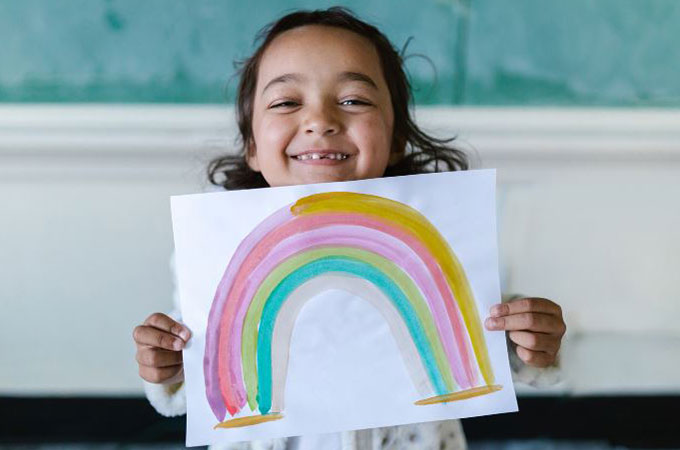Child psychotherapy is an intervention used in the treatment of behavioural, emotional and psychological difficulties in children aged between three and twelve years. Each therapist has a unique approach to working with children, and may integrate several therapeutic methods to find which one works for the child.

Child Therapy at Willow Tree
Infancy and childhood is where we learn to be attached to our caregivers and family and where we are met and respected as a unique person begins. A child breathes in the atmosphere in the home and it is a period when adverse childhood experiences can cause behavioral, emotional and psychological difficulties. Which can emerge at home, with friends or in school.
We work with you to understand and support your child in a safe space with play, arts and sand therapy which allows a window into your child’s inner world and encourages a safe expression of anxiety, sadness and distress and promotes better connection and presence.
The Goal of Child Therapy
Aside from the relief of symptoms, the goal is to build self esteem, improve emotional vocabulary, help improve communication, help improve relationships and stimulate self awareness. We work collaboratively with children and their parents offering support and guidance through the challenges of childhood / adolescence and the changing life cycle.
Examples of possible concern:
Parental separation, family bereavement, aggression, low self esteem, sadness, school issues, bullying, eating disorders, fear/panic, acting out/behavioural concerns, withdrawal, trauma, feeling different and gender issues.


The Goal of Child Therapy
Aside from the relief of symptoms, is to build self esteem, improve emotional vocabulary, help improve communication, help improve relationships and stimulate self awareness. We work collaboratively with children and their parents offering support and guidance through the challenges of childhood / adolescence and the changing life cycle.
Examples of possible concern:
Parental separation, family bereavement, aggression, low self esteem, sadness, school issues, bullying, eating disorders, fear/panic, acting out/behavioural concerns, withdrawal, trauma, feeling different and gender issues.
What to tell your child about coming to the first appointment.
Sometimes parents are not sure what to tell their child, however it is very important that your child knows that they will be meeting with a therapist and that they know why. Children should be told in advance and not on the day of the appointment. It is always best to be honest, you may say “I know you have been upset lately so I / we have made an appointment with a person who understands and helps kids who are upset”. You and your child can view our website.
What will happen at the first appointment?
Some therapists invite parent(s) and the child in question at the first appointment, while others meet the parents on their own. I recommend meeting both parents together, in the case of separated families we can offer separate parent appointments if that is helpful. You will be asked to fill out a parental consent form. Further appointments will be made and sessions are once a week on the same day, time and place. The duration of appointments will depend on the individual child’s presenting problem and its severity. It is recommended that closure of therapy is planned collaboratively between the therapist, parent(s) and child.


